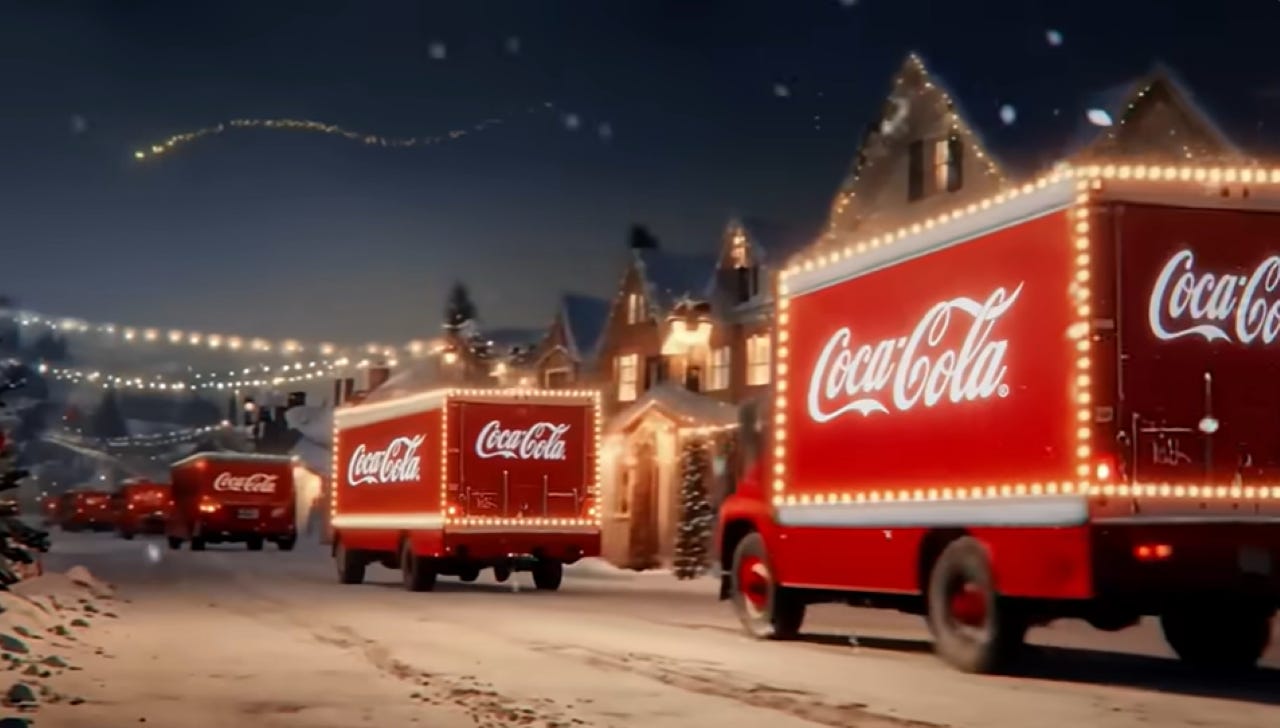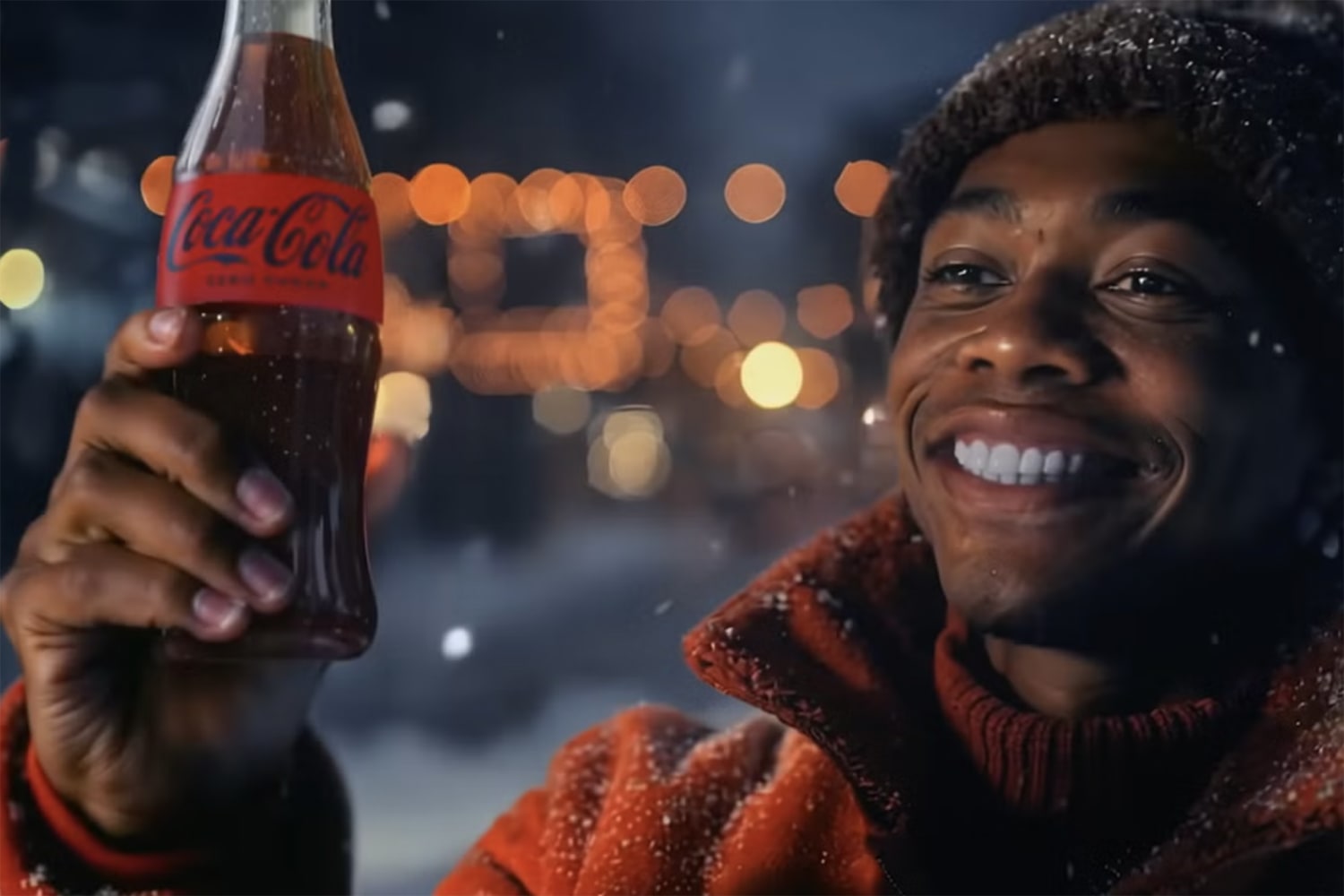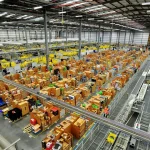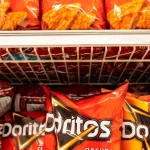The AI Rebound: Can Coca-Cola's 'Crafted' Christmas Ad Make Us Feel Something Genuine Again?
Coca-Cola’s AI Christmas Comeback: Can Technology Finally Win Hearts This Holiday Season?
Last year, Coca-Cola learned the hard way that artificial intelligence isn’t always a shortcut to magic.
Its 2024 holiday campaign — a glossy, AI-generated reboot of the beloved “Holidays Are Coming” ad — sparked global outrage. Artists accused the company of “replacing human creativity with algorithms,” and social media lit up with anger. Yet billions watched it anyway.
Now, just one year later, the world’s most famous beverage brand is taking another swing at redemption.
On November 3, 2025, Coca-Cola unveiled a brand-new AI-powered Christmas commercial, created once again by Los Angeles studio Secret Level — but this time, executives insist, everything is different.

“The Craftsmanship Is Ten Times Better”
“We listened. We learned. And we evolved,” says Pratik Thakar, Coca-Cola’s Global VP and Head of Generative AI. “Last year people criticized the craftsmanship — this year, the craftsmanship is ten times better.”
The 2025 ad returns to familiar holiday territory: the gleaming red trucks rumbling across snow-blanketed landscapes, a symphony of jingles and lights — but now, the humans are gone. Instead, polar bears, pandas, seals, and reindeer fill the screen, brought to life through a new generation of AI animation tools.
And finally, at the end, the door of a glowing Coca-Cola truck swings open. Out steps Santa Claus, generated exclusively from Coca-Cola’s original 1930s Haddon Sundblom paintings — the very images that helped define the modern-day Santa.
The goal this year isn’t to trick anyone into believing it’s real, but to spark wonder — to make AI feel warm again.
From Backlash to Curiosity
Coca-Cola’s 2024 misstep wasn’t just about aesthetics. It was about trust.
At the height of AI anxiety, creatives accused Coke of cutting human jobs while parading synthetic people as festive cheerleaders. It became a cultural flashpoint — the moment advertising collided with the ethics of automation.
This time, the company is betting that public sentiment has shifted.
AI-generated content has become almost invisible in everyday life — from TikTok filters to video game cinematics — and consumers have grown more comfortable with the blend of code and creativity.
“People just want to feel something genuine,” says Jason Zada, founder of Secret Level. “Our aim was to make this ad feel crafted, not computed.”
A New Look for an Old Legend
Unlike last year’s attempt, the 2025 version doesn’t shy away from AI’s surreal edges.
The animals’ eyes glimmer with Pixar-like emotion. The lighting mimics vintage film. And Santa — drawn entirely from archival art — feels both nostalgic and new.
Zada says the team deliberately leaned into the “animated fairytale” style rather than chase photorealism:
“The best compliment I get,” he says, “is when people tell me it doesn’t look like AI — it just looks right.”
While a traditional ad of this scale might require 50 or more artists, Coca-Cola’s new version took just 20 people to produce — a signal of how fast the industry is transforming.
Behind the Scenes of Coca-Cola’s AI Revolution
Coca-Cola isn’t just dabbling in AI — it’s reinventing its entire marketing model around it.
The company’s $5 billion annual ad spend is increasingly driven by machine-assisted creativity, from 3D product renders to predictive consumer trend tools.
The brand’s 2023 experiment, “Masterpiece”, which brought museum paintings to life, was widely praised as an artistic use of technology. But the 2024 fiasco taught them that emotion still matters more than engineering.
Now, Coca-Cola’s challenge is balancing innovation with authenticity — a line every brand in the AI era must walk.
The Bigger Picture: Can AI Rekindle the Human Spirit?
Coca-Cola’s gamble this holiday season isn’t just about an ad. It’s about whether technology can ever truly make us feel.
The soft glow of headlights in snow, the familiar jingle, the sight of Santa raising a bottle — these moments are designed to tug at nostalgia. The question is whether consumers will let an AI-generated world warm their hearts, or if the memory of last year’s backlash still lingers.
Either way, Coke has once again positioned itself at the center of the conversation — not just about soda, but about the soul of modern creativity.
⚖️ Legal Spotlight: The Truth-in-AI Era — What Coca-Cola’s Ad Reveals About Your Rights
If there’s one question this new Coca-Cola campaign raises beyond aesthetics, it’s this: “Do consumers have a right to know when an ad is made by AI?”
Under U.S. Federal Trade Commission (FTC) guidelines, the answer is increasingly yes. In 2024, the FTC reaffirmed that deceptive use of artificial intelligence in advertising — including undisclosed synthetic content — may violate Section 5 of the FTC Act, which prohibits “unfair or deceptive acts or practices.”
That means if an AI-generated Santa looks so lifelike that viewers believe it’s a real actor, and that illusion influences consumer behavior, brands could be held legally accountable for misleading representation.
Attorney Michael Justus, an Intellectual Property and Advertising Partner at Carlton Fields LLP, explains it this way:
“The FTC’s AI Guidance offers a clear path for ad compliance. The bottom line when it comes to using AI tools is: Do not overstate, understate, or discriminate.”
In Europe, rules are even stricter. The EU Artificial Intelligence Act, due to take effect in 2026, will require companies to clearly label synthetic media when used in commercial communication. Failure to do so could result in multimillion-euro fines.
For the average viewer, this isn’t just legal jargon — it’s about trust and truth in what we see. If you’re watching a heartwarming holiday ad, you have the right to know whether those smiles were filmed by a camera or rendered by code.
The takeaway:
As brands like Coca-Cola push deeper into AI-driven storytelling, consumers should expect clearer labels, more transparency, and stronger legal protections. And companies that ignore that shift may soon find the law — and public opinion — less forgiving than a Christmas ghost.
Final Thoughts
Coca-Cola’s new AI holiday campaign isn’t just a test of technology. It’s a mirror held up to us — our nostalgia, our fear of change, and our hope that even in a digital age, something as simple as a Coke can still bring people together.
This time, perhaps, the world won’t ask whether the ad was made by AI — but whether it made them feel.














